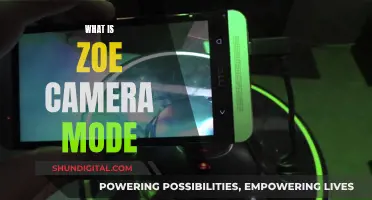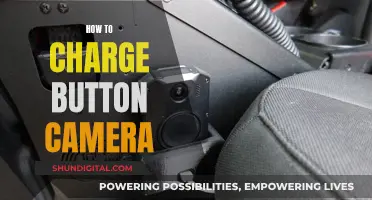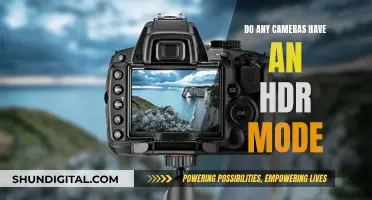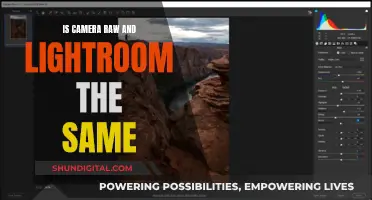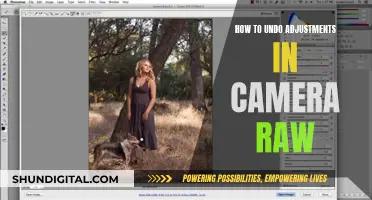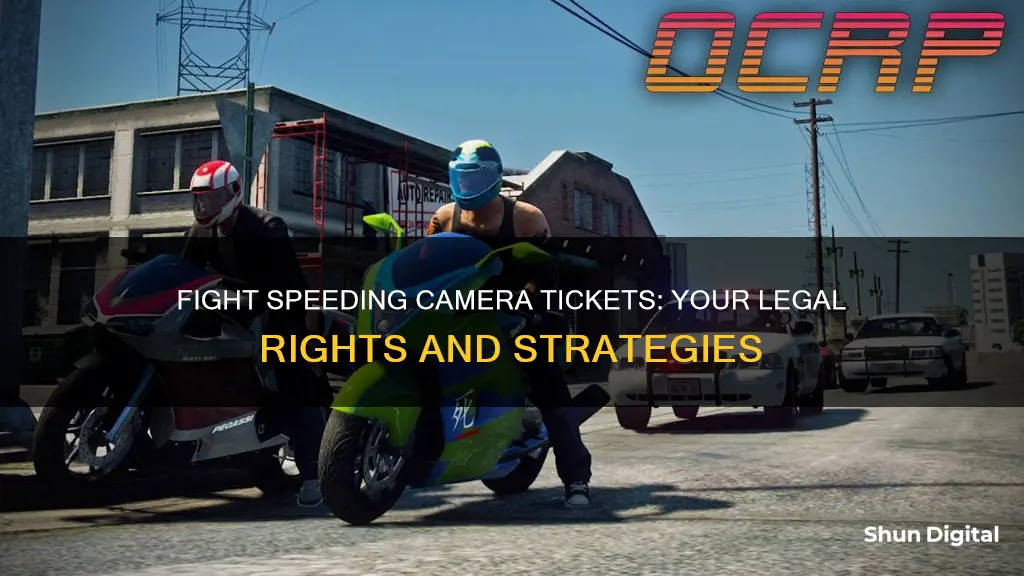
Getting a speeding ticket is never fun, but it's important to know that you have the right to contest it. While it may seem easier to just pay the fine and move on, there are several compelling reasons to consider fighting your ticket. In this paragraph, we will discuss the steps you can take to challenge a speeding camera ticket and increase your chances of a successful outcome. From reviewing the evidence to understanding your legal rights and potential defenses, let's explore the process of challenging a speeding camera ticket and empowering yourself to navigate this situation with confidence.
| Characteristics | Values |
|---|---|
| Ticket details | Check the date, time, location, and fine amount. Confirm you were driving and try to remember details of the incident. |
| Legal technicalities | Understand the law and penalties for the violation. Know your rights and possible defenses, such as challenging the admissibility of evidence or asserting your right to confront witnesses. |
| Evidence | Review photos for clarity and identification of your vehicle. Collect evidence supporting your case, such as maintenance records of the camera and witness statements. |
| Pleading | Plead not guilty by mail or online, or in court. Request a formal hearing and build your legal defense. |
| Hearing preparation | Organize your evidence and practice presenting your arguments clearly. Understand what to expect at the hearing, including the judge's review process and potential outcomes. |
| Signage | Argue that signage was missing, obscured, or incorrect. Ensure compliance with federal safety standards and state laws. |
| Professional support | Consider hiring a professional lawyer to help fight your case and increase your chances of success. |
What You'll Learn

Examine your ticket
When examining your ticket, there are several key details to look out for. Firstly, check the date, time, and location of the ticket. It's important to verify that you were actually driving the car when the ticket was issued, as camera tickets are typically sent to the owner of the vehicle, not the driver.
Next, make a note of the exact code section you're cited for violating. Understand the elements of the law and the associated penalties for violation. Ensure that the penalties listed on your ticket match those outlined in the code section. Remember, the prosecution has the burden of proving each element of your violation, so don't feel pressured to prove your innocence.
If your notification includes photos, review them carefully. Confirm that the vehicle in the photo is indeed yours, and check if the license plate is clearly visible. Blurry or unclear photos can be a strong defence. Additionally, if there's no identifiable photo of you in the driver's seat, it may be challenging for the prosecution to prove you were driving, especially if you live in a jurisdiction that requires tickets to follow the driver rather than the registered owner of the vehicle.
If photos were not included with your citation, you may need to wait until your trial is scheduled before requesting copies from law enforcement.
Do Red-Light Cameras Affect Insurance in Washington State?
You may want to see also

Plead not guilty
If you want to dispute a traffic camera ticket, you must plead not guilty. Here are the steps you should take:
Some jurisdictions allow you to respond to the citation by mail or online, especially for less serious violations like speeding or running a red light. Check your citation and make sure to plead not guilty before the deadline, which is typically within 30 days. If you have no option but to appear in traffic court, show up at the date and time specified on your citation.
Request a Formal Hearing:
When you plead not guilty, demand a full formal hearing or trial. You may be required to attend other hearings, such as pre-trial hearings or mediations, but don't settle for anything less than a full dismissal of your ticket.
Research Applicable Laws and Precedents:
Look for cases in your city or county regarding traffic cameras and see if any appellate court decisions have ruled on their legality. Some states have specific rules about warning signs that must be posted, and if these were missing or obscured, you may have a defence. Additionally, some states recognise a necessity defence for speeding, which could apply if you were rushing to the hospital, for example.
Gather Evidence and Documentation:
Call the local police department to request copies of photos if they weren't included with your citation. Also, request maintenance records for the camera and traffic light or speed monitoring system to establish that they were properly maintained and calibrated. Gather any other evidence, such as statements from passengers or witnesses, to support your case.
Present Your Defence:
Arrive at your hearing with copies of any evidence and maintain a professional appearance. Treat courthouse staff with respect and don't interrupt the prosecutor when they present their case. Listen carefully and make notes on points you want to address. Challenge the admissibility of the photograph as hearsay and assert your right to confront witnesses. Dispute the authenticity of the photograph if no one from the company that maintains the camera shows up to testify. Highlight any lack of evidence, such as unclear photos that don't show you driving.
Charging the Blackmagic Camera: A Step-by-Step Guide
You may want to see also

Research the law
When challenging a speeding camera ticket, it's important to research the relevant laws and regulations. Here are some steps to guide you through the process:
Understand the Different Types of Speed Limits:
There are typically three types of speed limits: "absolute" (or "maximum"), "presumed" (or "prima facie"), and "basic" speed limits. Knowing which type of speed limit you're accused of violating is crucial for building your defence.
Identify the Method of Speed Measurement:
Find out how your speed was measured. Common methods include pacing, aircraft, radar, LIDAR, or VASCAR. This information will be useful when challenging the accuracy of the speed measurement.
Research the Applicable Laws and Precedents:
Look up the specific traffic law code section mentioned on your citation. Understand the legal requirements and penalties associated with the violation. Also, research case precedents in your city or county regarding traffic cameras. Check if there are any appellate court decisions that have ruled on the legality of traffic camera tickets.
Know Your Defences:
Familiarize yourself with possible defences that are recognized by law. For example, some states have specific rules about the placement of warning signs for traffic cameras. If the warning signs were missing or obscured, you may have a valid defence. Additionally, some states recognize a necessity defence for speeding, such as driving to the hospital in an emergency.
Understand the Burden of Proof:
Remember that the prosecution has the burden of proof. They must prove each element of your violation. You are not responsible for proving your innocence.
Raw Files: Unlocking the Power of Photography
You may want to see also

Challenge the admissibility of the photo
Challenging the admissibility of a photograph in a speeding ticket case can be a crucial strategy in disputing the evidence presented against you. Here are some key steps and considerations to help you challenge the admissibility of the photo:
- Obtain the Photographs: If you haven't already received the photographs as part of the notification or citation, you may need to request them from the relevant law enforcement agency. This step is important as it gives you access to the evidence that will be used against you.
- Review the Photos in Detail: Analyze the photographs thoroughly. Check if your vehicle is clearly identifiable, including the license plate. Also, look for any signs of photo manipulation or tampering. If the photos are blurry or unclear, it may be challenging to confirm that the vehicle is indeed yours.
- Question the Reliability of the Photographs: Challenge the reliability and accuracy of the photographs. Request maintenance and calibration records for the camera that took the photos. Inquire about the testing and calibration history of the camera, particularly within a reasonable period before your ticket was issued. If the camera was not properly maintained or calibrated, it could impact the admissibility of the photo as evidence.
- Assert Your Rights: Understand your legal rights and assert them effectively. For example, under the Sixth Amendment of the Constitution, you have the right to cross-examine witnesses. In the case of a speeding ticket with a camera-based photo, there may not be a witness who can testify about the maintenance and accuracy of the camera system. This absence of a witness can be used to challenge the admissibility of the photo.
- Dispute the Authenticity: If no one from the company or agency that maintains the camera appears in court to testify about the reliability and accuracy of the photo, you can object to the use of the photographs for lack of foundation. The prosecution must present evidence that the camera, along with any connected systems, was functioning properly for the photo to be considered reliable and admissible.
- Research Applicable Laws and Precedents: Look for cases in your city or county regarding traffic cameras and speeding tickets. Research if there have been any appellate court decisions that ruled on the legality of such photo evidence. This research will help you identify potential legal arguments to challenge the admissibility of the photo.
- Raise Doubts About the Evidence: Even if the photos are clear and the judge allows them as evidence, you can still argue that the prosecution cannot prove you were driving the vehicle. Additionally, question whether the traffic light or speed detection system was functioning properly. The prosecution must prove that these systems were working accurately for the photo to be considered valid evidence of your speeding violation.
- Consider Other Defenses: If your challenge to the admissibility of the photo is unsuccessful and the photo is admitted as evidence, you can still raise other defenses. For example, you may argue that you were driving with the flow of traffic or that weather conditions required you to drive at a certain speed. Remember that you don't always have to deny guilt for these defenses to work.
Recharging Camera Batteries: A Quick Guide to Powering Up
You may want to see also

Argue against the accuracy of the camera
If you want to challenge a speeding ticket, you can argue against the accuracy of the camera. Here are some ways to do that:
- Request maintenance and calibration records of the camera to check if it was functioning correctly at the time of the alleged violation.
- Argue that the camera was not properly maintained or calibrated, and therefore the recorded speed might be inaccurate.
- Check if there were multiple vehicles in the radar's frame of reference. Some devices are not supposed to go off if there is more than one vehicle in the frame.
- Present your own evidence of your speed, such as using your car's speedometer or a GPS device.
- Measure the distance your car travelled between the markings on the ground and calculate your speed.
- Argue that the camera violated your privacy, as data such as your speed, license plate number, and an image of your vehicle are collected when you speed.
The Evolution of Color Photography: Capturing Life's Colors
You may want to see also
Frequently asked questions
First, check the date, time, and location of the ticket. Because camera tickets are sent to the owner of the car, make sure you were the one driving when the ticket was issued. If not, you cannot be prosecuted.
Try to remember what you were doing or what was happening at the time, and write down any details you remember. For example, you may have been making a legal right turn on red when the camera took the photo. If you were making a legal manoeuvre, you should be able to get the ticket dismissed.
Make sure you understand the law and the penalties for violation. If you were speeding, check if there were clearly visible warning signs for cameras. If the warning signs were obscured or not present, you might not have to pay the fine.
Some states have a necessity defence for speeding. Since a camera cannot tell why you were speeding, you may be able to get out of the ticket this way.
Plead not guilty by writing to your traffic court. If you have to attend an arraignment, plead not guilty and request a formal hearing. Present your case in court, using any evidence to support your claim.


